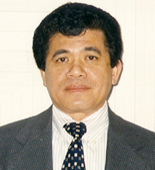|
US Immigration
|
|
|
Posted 11/03/2008 |
|
|
|
LEGAL NOTES /
By REUBEN SEGURITAN |
Son Deported for Marrying Before U.S. Entry
|
Immigrant visa applicants who are categorized as unmarried sons
and daughters of U.S. citizens or lawful permanent residents are
not supposed to get married prior to their admission to the U.S.
If they do, they become inadmissible.
But many get married anyway, usually upon the insistence of the
parents of their fiancé(e). And they enter the U.S. without
disclosing their marriage.
A lot of times, their misrepresentation goes undetected by the
United States Citizenship and Immigration Services (USCIS) until
they petition their spouses and children or apply for American
citizenship or do something else that catches the attention of
USCIS investigators.
This is what happened to Rolando Manapa Federiso, a Filipino
residing in California. He was petitioned by his U.S. citizen
mother in November 1986 as a single son under the first
preference family-based category.
|
|
In January 2001, he was served with a Notice to Appear by the
USCIS, charged as removable for his fraud and misrepresentation
that occurred fourteen years earlier.
He went before an Immigration Judge and his lawyer asked for a
waiver of his misrepresentation based on a law that provided for
eligibility for this relief to the son of a citizen of the U.S.
|
|
The immigration law allows for a waiver of removal for certain
aliens who were inadmissible at the time of entry because they
used fraudulent document or willfully misrepresented a material
fact.
To be eligible for this waiver, which is discretionary on the
part of the Attorney General, the applicant must show that
he/she is the spouse, parent, son or daughter of a U.S. citizen
or a lawful permanent resident of the U.S.
|
|
|
On July 28, 2006, the Immigration Judge granted Mr.
Federiso’s request for a waiver of his removal. The
Department of Homeland Security (DHS) appealed the case
to the Board of Immigration Appeals.
In its appeal, the DHS contended that he did not qualify
for the waiver because his U.S. citizen parent died in
2005. His lawyer, on the other hand, argued that since
hardship to a qualifying relative was not required as in
other types of waiver, his parent need not still be
living.
The Board of Immigration Appeals sided with the DHS. In
its decision on October 23, 2008, the Board noted that
it is clear from the legislative history, the statutory
language and its interpretation by the courts that the
purpose of the law is to unite families in the U.S. and
preserve family ties. It cited an earlier case which
said that the fundamental reason for such law was to
prevent deportation where it would break up a family
composed in part of U.S. citizens or lawful permanent
residents.
The fraud waiver was provided for the purpose of uniting
aliens with their U.S. citizen or lawful permanent
resident spouse, parent son or daughter who are still
living or with whom they maintain family relationships.
Since the applicant’s mother had already died, he no
longer has a qualifying relative with whom to remain in
the U.S. Hence, the court issued a deportation order
against him.
|
|
REUBEN S. SEGURITAN
 has been practicing law for over 30 years and is included in the Marquis Who’s Who in American Law. A former law editor and professor, he is also the author of a book on immigrant experiences. He has spoken in international and national conventions and has been interviewed on radio and television, including the ABC Nightly News. He has participated in meetings with White House staff and the Immigration Commissioner to discuss immigration reforms. For his community service and advocacy, he has received numerous awards in the U.S. and abroad. For more information, you may log on to his website at www.seguritan.com or call (212) 695-5281
has been practicing law for over 30 years and is included in the Marquis Who’s Who in American Law. A former law editor and professor, he is also the author of a book on immigrant experiences. He has spoken in international and national conventions and has been interviewed on radio and television, including the ABC Nightly News. He has participated in meetings with White House staff and the Immigration Commissioner to discuss immigration reforms. For his community service and advocacy, he has received numerous awards in the U.S. and abroad. For more information, you may log on to his website at www.seguritan.com or call (212) 695-5281 |
|
|
|
|
|
|
|
|
|
|





 has been practicing law for over 30 years and is included in the Marquis Who’s Who in American Law. A former law editor and professor, he is also the author of a book on immigrant experiences. He has spoken in international and national conventions and has been interviewed on radio and television, including the ABC Nightly News. He has participated in meetings with White House staff and the Immigration Commissioner to discuss immigration reforms. For his community service and advocacy, he has received numerous awards in the U.S. and abroad. For more information, you may log on to his website at www.seguritan.com or call (212) 695-5281
has been practicing law for over 30 years and is included in the Marquis Who’s Who in American Law. A former law editor and professor, he is also the author of a book on immigrant experiences. He has spoken in international and national conventions and has been interviewed on radio and television, including the ABC Nightly News. He has participated in meetings with White House staff and the Immigration Commissioner to discuss immigration reforms. For his community service and advocacy, he has received numerous awards in the U.S. and abroad. For more information, you may log on to his website at www.seguritan.com or call (212) 695-5281